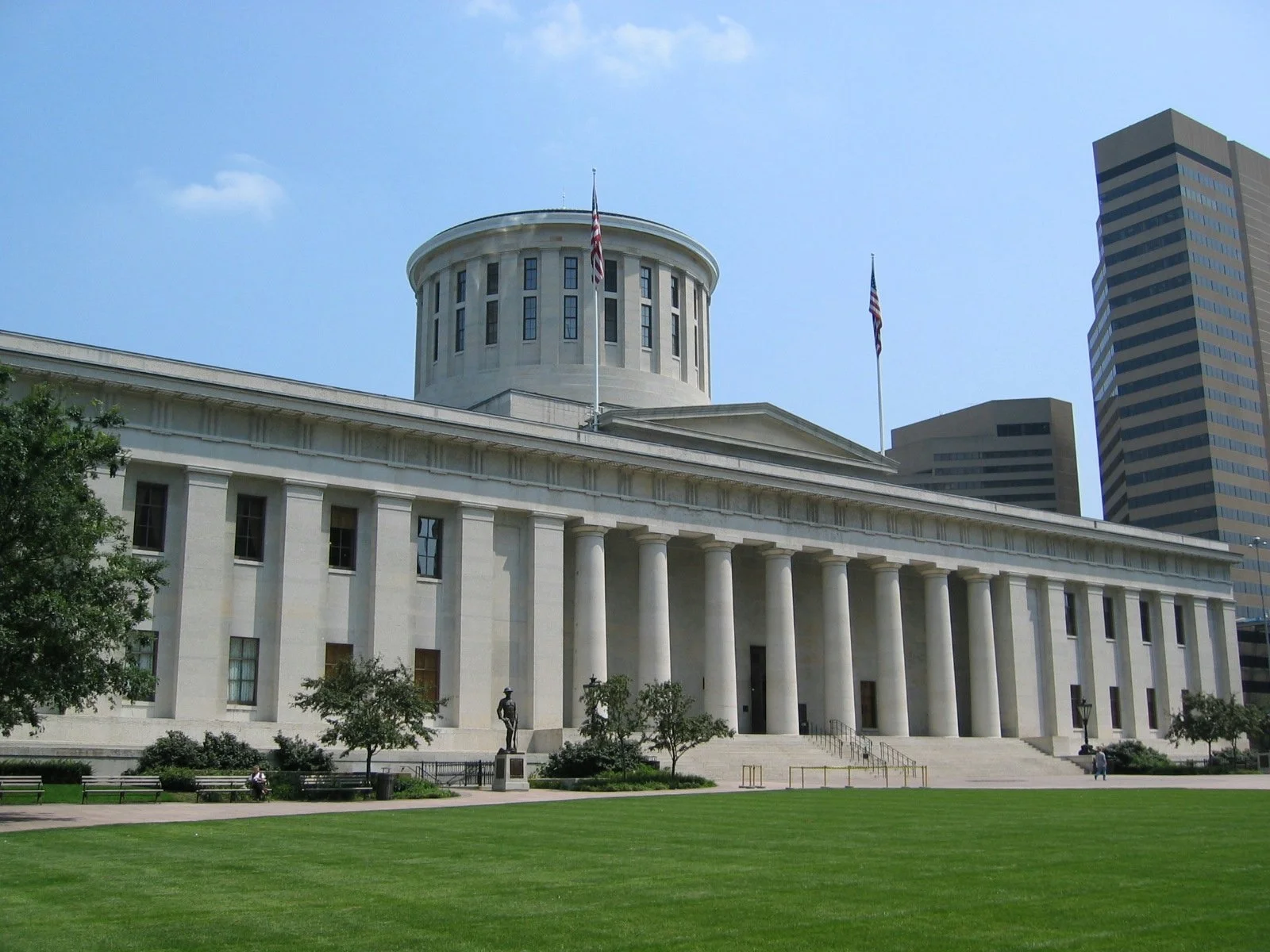By Jason Warner, GOPC Manager of Government Affairs
The Ohio House gave final approval yesterday to a nearly $69 billion two year budget plan that makes a number of changes to the bill submitted to lawmakers by Governor DeWine on March 15.
The bill, which was unanimously reported by the Finance Committee on May 8 and approved by the full House by a bipartisan 85-9 vote, made a number of changes to the ‘as-introduced’ version of the bill. Among the changes made, lawmakers approved another round of personal income tax cuts, eliminating the bottom two tax brackets (any Ohioans earning less than $22,250 per year will now pay a 0% rate), while reducing income taxes across the board for all taxpayers by 6.6%.
In order to cover the cost of the reduced income taxes, House lawmakers are eliminating or reducing a number of tax credits, including the Motion Picture Tax Credit ($80 million over two years), Campaign Contribution Tax Credit ($16.3 million over two years), and a change to the business income tax credit.
While eliminating some tax credits, the bill also includes a number of new tax credits, including the creation of a new Opportunity Zone Investment tax credit, which is equal to 10% of an individual’s investment in an Opportunity Zone investment fund, up to $1 million over two years. There will be $50 million set aside to cover these nonrefundable tax credits. The bill also provides for up-to $5 million in nonrefundable tax credits to be issued to taxpayers to cover the cost of up-to $10,000 for costs incurred to abate lead hazards in dwellings built before 1978. These credits will be for the total amount of the abatement costs, or $10,000, whichever is less.
GOPC is concerned about the inclusion of language which was included in the bill which exempts from property tax the value of unimproved land subdivided for residential development in excess of the fair market value of the property from which that land was subdivided, for anywhere from three to six years. This language is similar to another bill currently pending before the legislature, House Bill 149. Greater Ohio Policy Center is opposed to the enactment of HB149 due to our concern that the bill subsidizes unsustainable urban and suburban sprawl. We will be asking the Ohio Senate to remove the language to allow for further review and debate on HB149 as a standalone bill.
GOPC will also continue to advocate for two funding issues while the bill is under consideration in the Ohio Senate. These include our request that the legislature again provide funding to the Clean Ohio Revitalization Fund, which provided funding for brownfield remediation projects around the state and produced a 4-1 return on investment for the state. We will also request that lawmakers provide the Ohio Department of Transportation with greater flexibility in how to invest in new $70 million in general revenue funding for public transit so that ODOT can provide funding for both fleet and operation investments. GOPC will also continue to our efforts to encourage the state to establish a permanent, dedicated funding source for the long-term sustainability of transit investment in Ohio going forward.
House Bill 166 is now before the Ohio Senate, where lawmakers have been conducting informal hearings on the budget since late April. The final budget agreement must be approved and submitted to Governor DeWine by June 30 and will take effect on July 1, when the new state fiscal year is set to begin.

